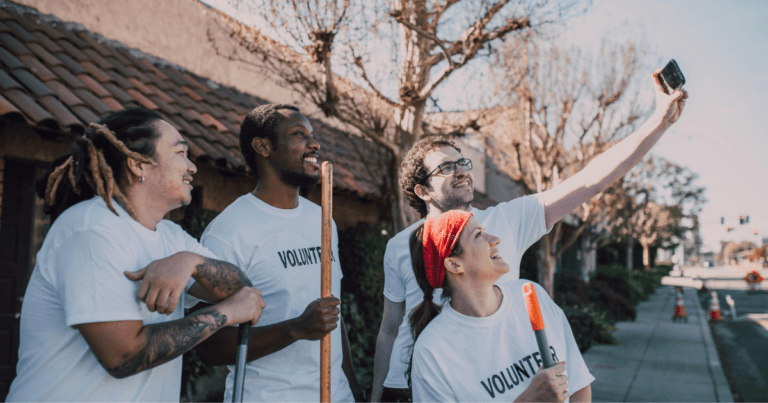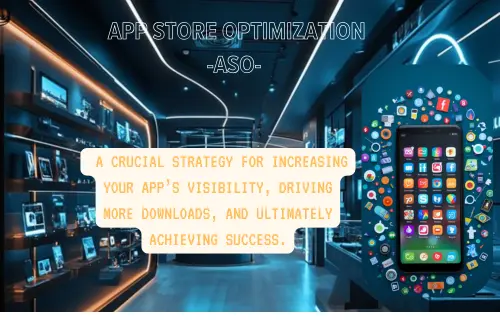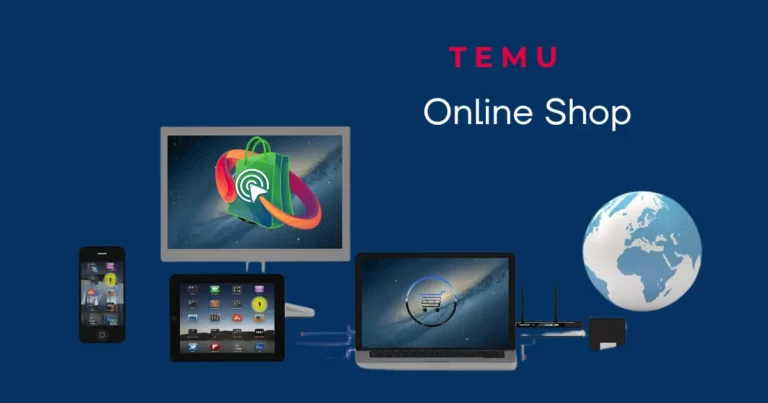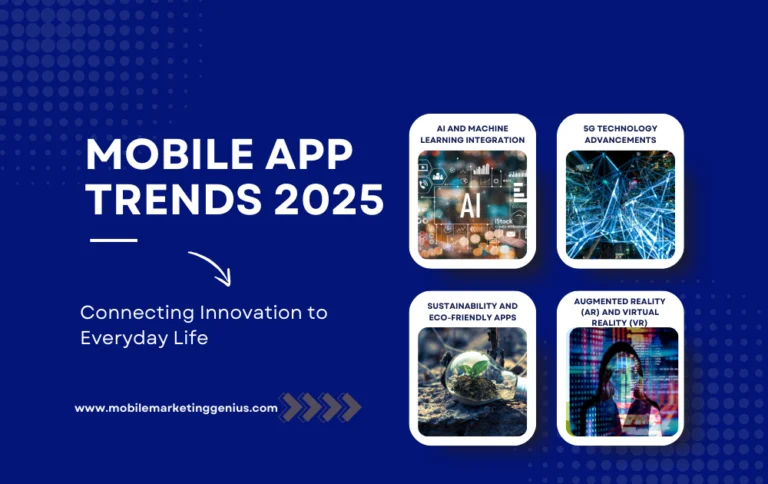Data Privacy in Mobile App Marketing: Protecting User Data While Enhancing Brand Trust

Imagine downloading an app with excitement, only to realize later that your personal information—such as your location, preferences, and behavior—is being used without your consent. Scary, right? In today’s world, data privacy in mobile app marketing is more than just a legal requirement—it’s a key factor in building trust with your users and ensuring your app’s long-term success.
With the rise of mobile apps, user data collection has become a core aspect of marketing strategies. But users are more cautious and knowledgeable than ever. They demand transparency, security, and control over their personal data. By prioritizing data privacy, you can not only avoid penalties under regulations like the California Consumer Privacy Act (CCPA) but also earn the loyalty and trust of your users.
In this comprehensive guide, we’ll dive into why data privacy in mobile app marketing matters, how you can implement the best security practices, and what tools can help you stay compliant while protecting user data.
Table of Contents
1. Why Data Privacy is Crucial in Mobile App Marketing
The Growing Importance of User Trust
In mobile app marketing, data privacy is the foundation of user trust. As you collect a wide array of data—from location and browsing habits to preferences—you also take on the responsibility of protecting that information. Failure to do so can result in significant reputational damage and legal repercussions.
Users today are highly aware of their rights regarding data privacy. According to recent studies, 70% of users are concerned about how their personal data is being collected and used by mobile apps. This shift in user behavior highlights the necessity for mobile app developers and marketers to be transparent, responsible, and proactive.
Key Takeaway: When your users trust that their data is safe, they are more likely to engage with your app, remain loyal, and recommend it to others. Failing to prioritize data privacy can lead to the loss of that trust, as well as financial penalties under strict privacy laws.
2. Legal Framework: CCPA and Other Key Regulations for Mobile Apps
What is CCPA, and How Does it Apply to Mobile Apps?
The California Consumer Privacy Act (CCPA) is one of the most significant data privacy laws in the U.S. It grants users the right to know what personal information is being collected, the right to request its deletion, and the right to opt out of data sales. The CCPA specifically affects mobile apps, as they often collect sensitive information like geolocation, device IDs, and user preferences.
To comply with the CCPA, you need to:
- Provide clear, accessible privacy notices explaining data collection.
- Offer a “Do Not Sell My Personal Information” option.
- Allow users to request access to their data and delete it if desired.
Key Takeaway: Staying compliant with the CCPA and similar regulations not only protects you from fines (up to $7,500 per violation under the CCPA) but also builds transparency with your users, which is vital for long-term engagement and trust.


3. Best Practices for Data Privacy in Mobile Apps
Building Trust with Privacy Policies and Consent Management
Your privacy policy is the backbone of your app’s transparency. It should be easy to access and written in plain language, explaining what data you collect, why you collect it, and how you use it. Users should also have control over their data through clear consent management systems.
Here’s how you can ensure your privacy policies are effective:
- Transparency: Provide clear information about the types of data being collected (e.g., location, in-app behavior).
- Consent Management: Allow users to opt-in or opt-out of data collection, especially for sensitive information. Always use explicit opt-in mechanisms, never pre-checked boxes.
- User Control: Let users manage their privacy settings anytime, making it easy for them to revoke consent or update preferences.
Key Takeaway: Building trust through a well-crafted privacy policy and giving users control over their data will set you apart from the competition and prevent privacy-related complaints or legal issues.
4. Mobile App Data Security: Protecting User Data from Breaches
Critical Security Measures for App Data Protection
With mobile apps becoming prime targets for cyberattacks, securing user data is essential. Even if you have the most transparent privacy policy, it won’t matter if your app is vulnerable to breaches. The costs of a data breach extend beyond legal fines—there’s a significant loss of user trust, too.
Here are the core elements of mobile app data security:
- Encryption: Ensure that all sensitive data is encrypted, both in transit and at rest, using industry-standard algorithms like AES-256. Encryption ensures that even if hackers access the data, they won’t be able to use it without the key.
- Secure Authentication: Implement multi-factor authentication (MFA) to prevent unauthorized access to user data.
- Regular Security Audits: Conduct thorough security audits to detect and fix vulnerabilities in your app’s data protection mechanisms.
Table: Best Practices for Mobile App Data Security
| Best Practice | Purpose | Example Tool/Service |
|---|---|---|
| AES-256 Encryption | Protects sensitive data in transit and at rest | AES-256 Encryption Tools, SSL certificates |
| Multi-Factor Authentication | Prevents unauthorized access to user data | Google Authenticator, Duo Security |
| Consent Management Systems | Allows users control over their data preferences | OneTrust, Cookiebot |
| Data Anonymization | Removes identifiable information, enhancing privacy | K-anonymity tools, Google Analytics |
| Regular Security Audits | Detects vulnerabilities to improve data protection | TrustArc, DataGuard |
| Data Minimization | Limits data collection to only what is necessary | Built-in app limitations, privacy filters |
| Incident Response Plan | Ensures prompt action in case of a data breach | Incident Management Software, Response Teams |
Key Takeaway: Regular security practices like encryption and authentication are vital in preventing data breaches, which can damage both your reputation and your bottom line.
5. Data Minimization: Collecting Only What You Need
Why Less Data is More Secure
Data minimization is a simple yet powerful practice in data privacy for mobile app marketing. Collecting only the data you need for the app to function reduces the risk of exposure during a breach and reassures users that you’re not overreaching.
Consider these principles:
- Only collect necessary data: If your app doesn’t need access to location data or contacts, don’t ask for it.
- Anonymize data: Whenever possible, use anonymization techniques to protect user identity while still collecting valuable insights.
Key Takeaway: By minimizing the data you collect, you lower the risk of a breach and demonstrate to users that you value their privacy.
6. What to Do When a Data Breach Occurs
Steps to Handle a Breach Effectively
Even with the best security practices, breaches can still happen. Being prepared with a data breach response plan ensures that you can act quickly and mitigate the damage.
Here’s a step-by-step guide to managing a data breach:
- Identify the Source: Quickly determine where and how the breach occurred.
- Contain the Breach: Implement measures to stop further data leakage.
- Notify Users and Authorities: Under CCPA, you are required to notify affected users and relevant authorities promptly, usually within 72 hours.
- Mitigate Future Risks: Strengthen security measures to prevent similar breaches.
Key Takeaway: A prompt and effective response can help you regain user trust, even after a data breach. Transparency and communication are critical.
7. Conclusion: Protecting User Data is Protecting Your Brand
Data privacy in mobile app marketing is no longer just a regulatory requirement—it’s a fundamental aspect of building trust with your users. By implementing strong security measures, providing clear and transparent privacy policies, and staying compliant with regulations like the CCPA, you can protect your users’ data and ensure the long-term success of your app.
Start by auditing your data privacy practices today, and take the necessary steps to create a secure, transparent, and trustworthy mobile app environment.
FAQ
Why is data privacy important for mobile app marketing?
Data privacy helps build user trust, ensures compliance with laws like the CCPA, and protects your business from legal penalties and reputational damage.
What are the key regulations affecting mobile app data privacy?
The California Consumer Privacy Act (CCPA) is a major regulation in the U.S. It gives users control over their data, including the right to know what’s being collected and to opt out of data sales.
How can I ensure compliance with the CCPA for my mobile app?
Implement clear consent forms, provide users with access to their data, and offer an easy-to-find opt-out option for data sales. Ensure that your app is transparent about how it collects and uses data.
What are the consequences of a data breach in mobile marketing?
Consequences can range from legal penalties—such as fines under the CCPA—to severe reputational damage, which can result in lost users and revenue.
What tools can help manage app privacy and compliance?
Tools like OneTrust and TrustArc can assist in managing consent, conducting audits, and ensuring that your app complies with privacy regulations.







5 Comments
Comments are closed.